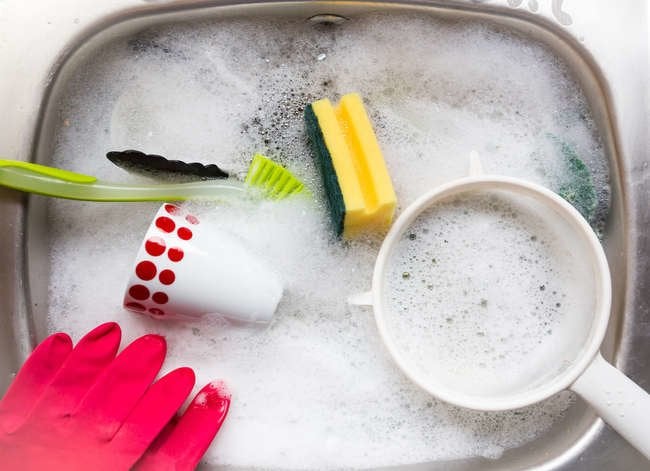

We may earn revenue from the products available on this page and participate in affiliate programs. Learn More ›
Home Advice You Can Trust
Tips, tricks & ideas for a better home and yard, delivered to your inbox daily.
Dishwashing is a task most people don’t look forward to. If you’d rather be doing, well, anything rather than washing the dishes, check out these simple tips and tricks. While they won’t save you from having to wash dishes at all, they will make the job faster and easier than you may have thought possible.
Bag the Tiny Stuff
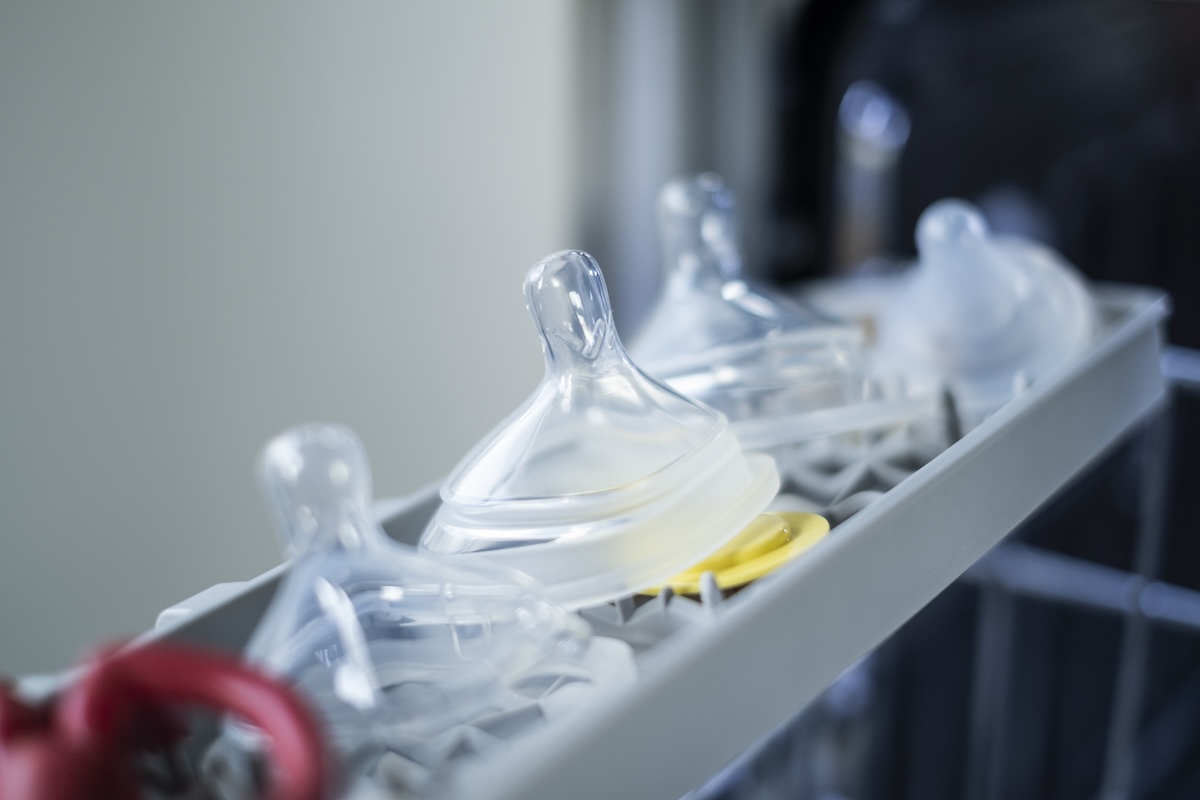
Photo: iStock
Tiny items, such as bottle tops, cocktail forks, and kids’ toys and pacifiers, can get lost in the wash cycle if they’re placed in the silverware basket or upper rack. Instead of throwing such items directly into the dishwasher, first pop them in a laundry bag. The mesh bag will keep them from getting tossed around—or worse, lost—inside your appliance. Place the bag on the top rack when you run a load for best results.
Pulse Soap in the Blender
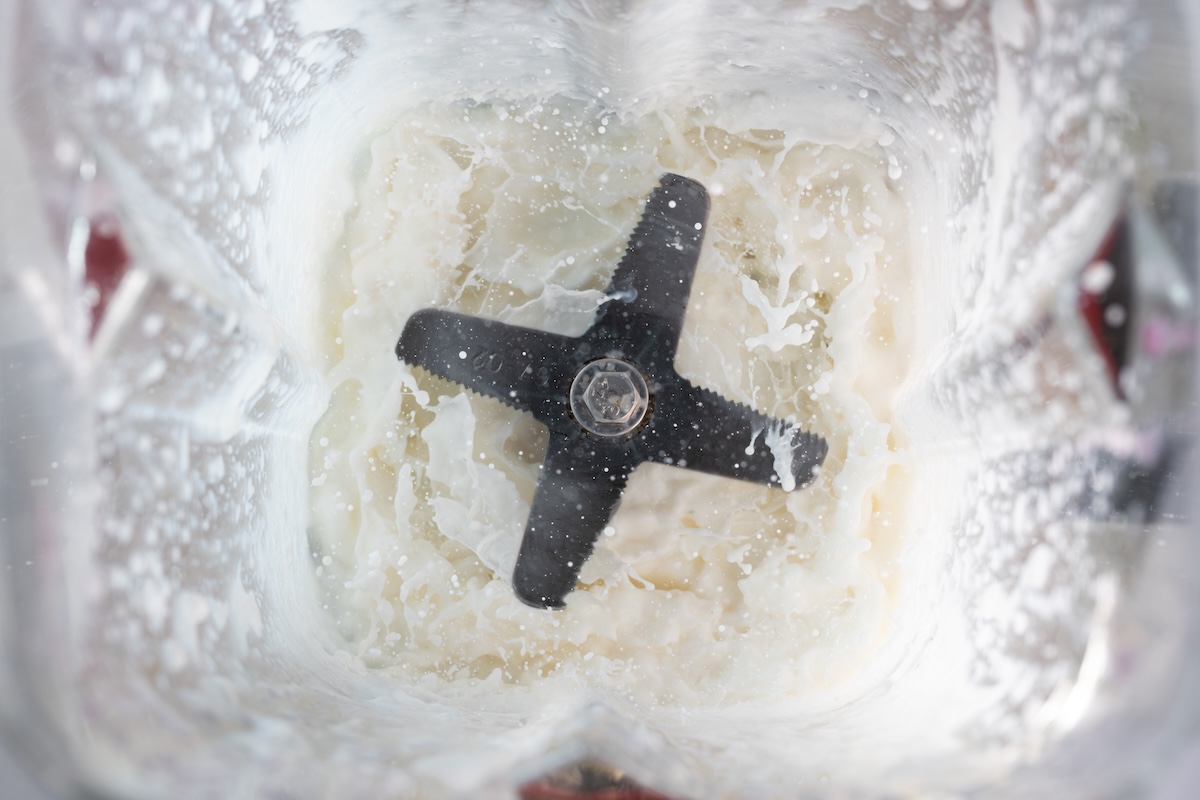
Photo: iStock
With their sharp blades and tiny crevices, blenders and food processors are a challenge to clean. To dislodge food that’s stuck around and underneath the blades, first run a bit of soapy water through the blender on the pulse setting to give the cleaning process a head start.
Make Use of Plastic Bins
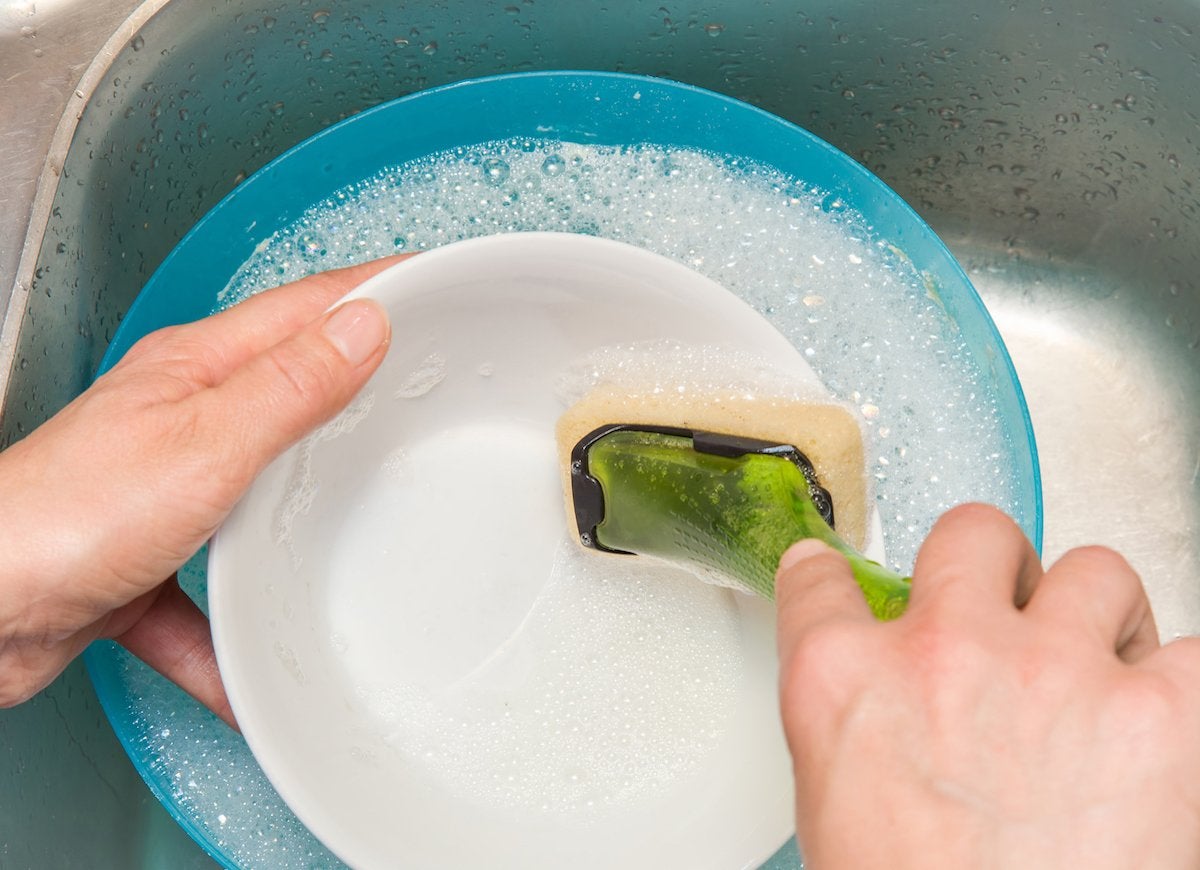
Photo: iStock
Contain yourself, or at least your dishes, when you’re on after-dinner cleaning duty. Instead of putting dirty dishes straight into the sink, pile them into a plastic bin. Place the container on the countertop or, if it’s small enough, inside the sink, so you can keep all or part of the sink clear for other tasks until you can tackle the dishes. Pouring hot water and a little soap in the bin will give your dirtiest items an instant presoak.
Squeeze Soap From a Small Dispenser
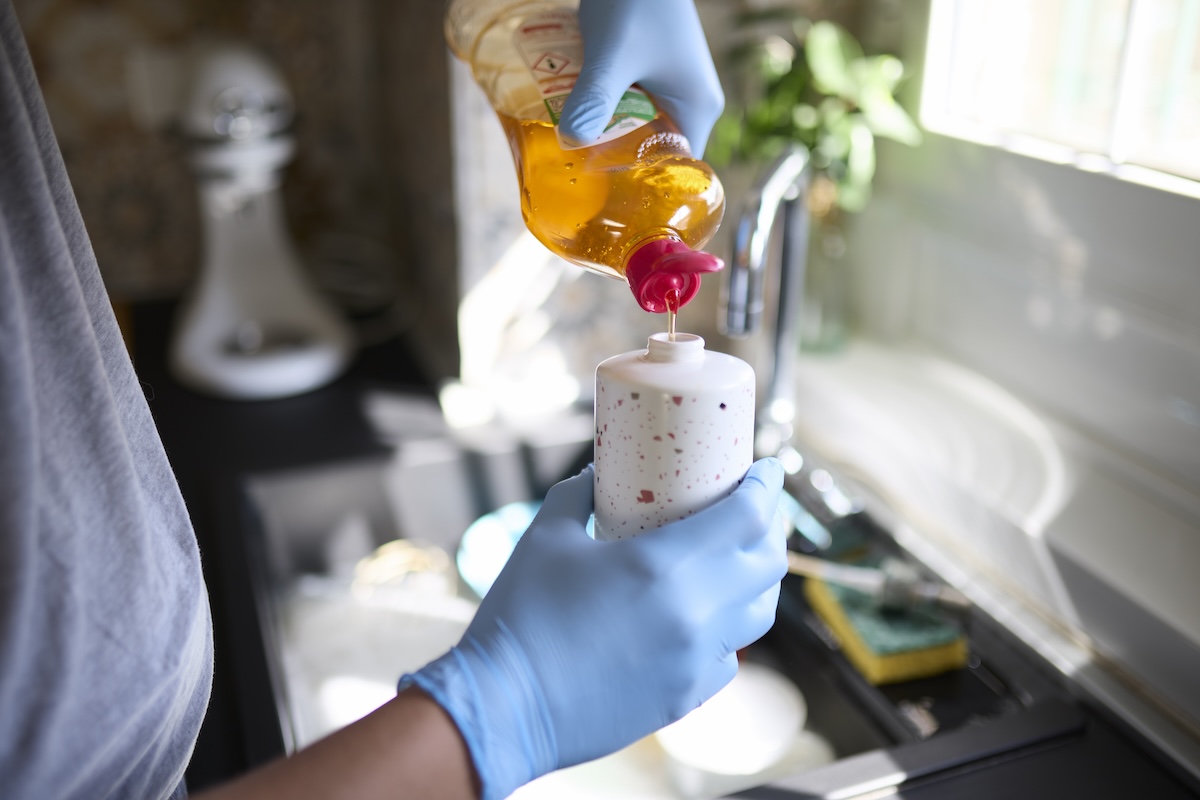
Photo: Nico De Pasquale Photography via Getty Images
Buying dishwashing liquid in bulk is a money saver, but large bottles are not easy to handle, especially with wet hands. Keep a refillable dish detergent dispenser on the counter by the sink, and leave your bulk bottle under the sink for refills. Soap will be just a quick squeeze away anytime you need it.
Don't Prewash Plates Before Putting Them in the Dishwasher
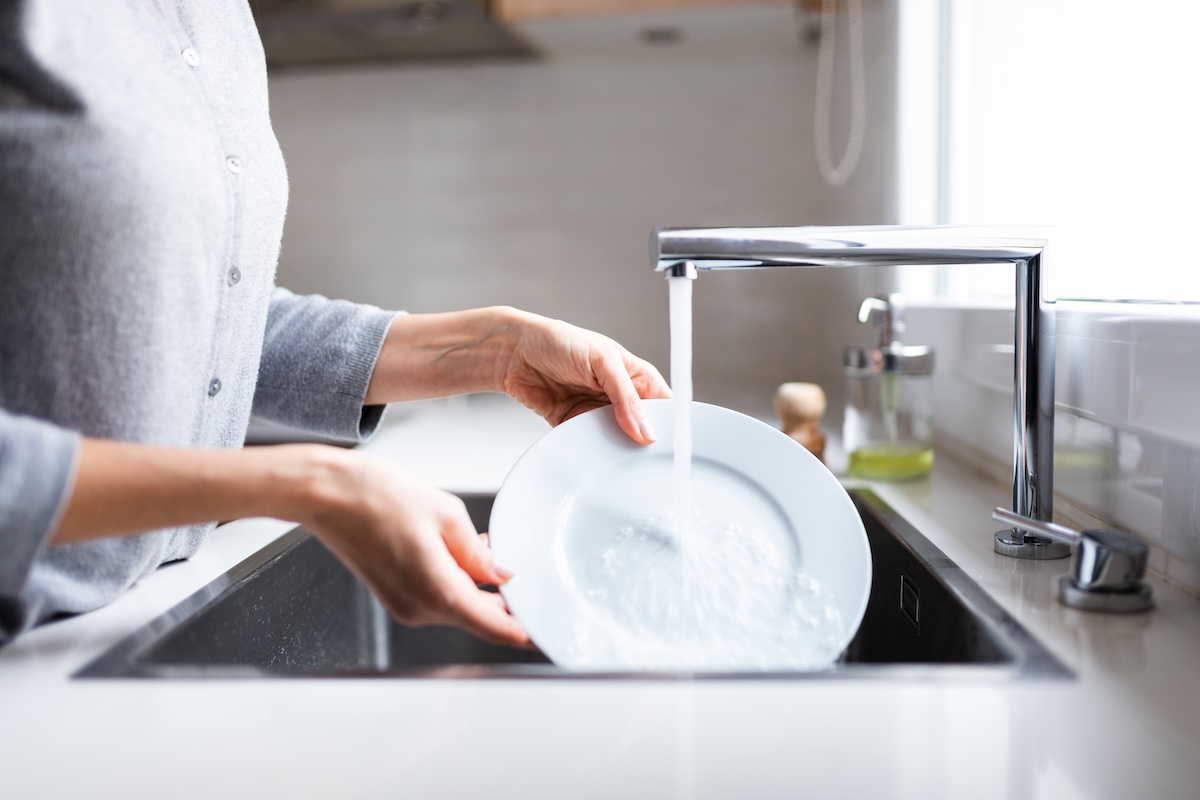
Photo: iStock
Scrape your plates but don’t rinse them before loading the dishwasher. The small food particles left behind on your dishes actually act as an aggregate that helps get dishes cleaner as they run through the wash cycle.
Presort Your Flatware
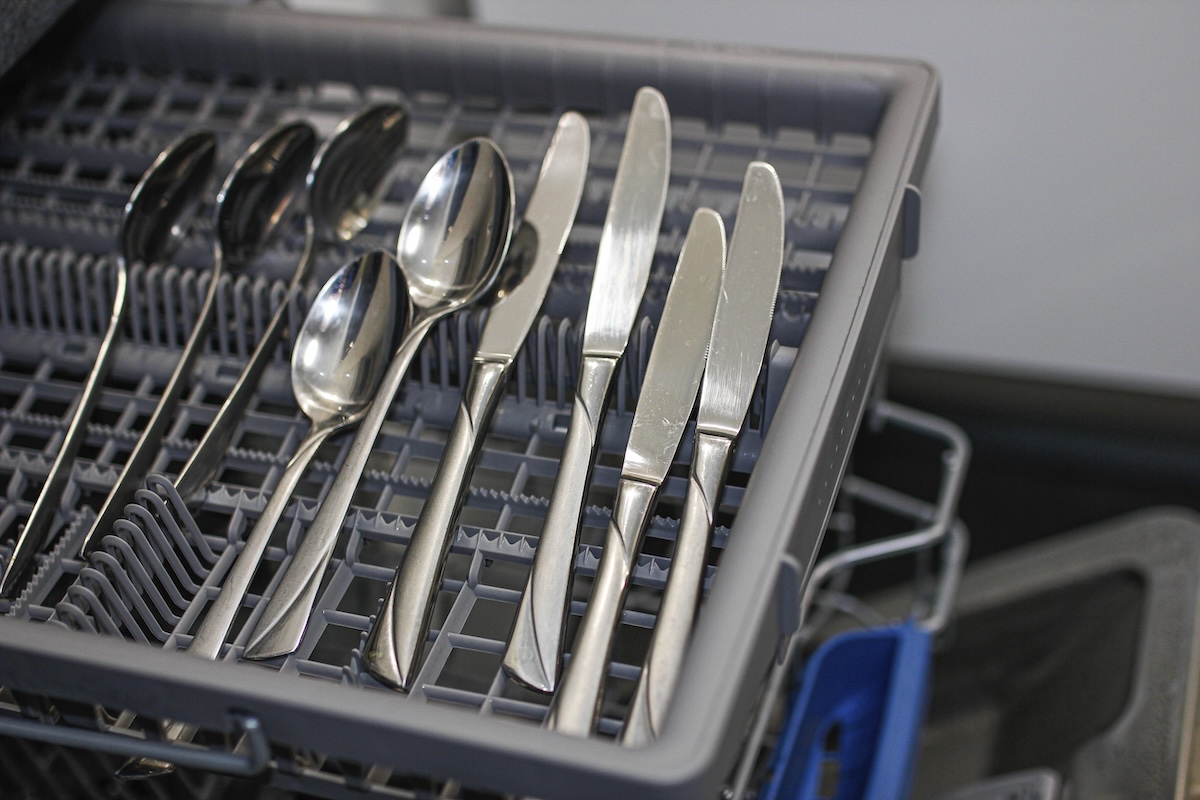
Photo: iStock
Sort your flatware as you load the dishwasher, grouping all the spoons, knives, and forks with their companions. Presorting your utensils doesn’t add much time to your dishwashing routine, and it saves time later when you put the dishes away.
Flip-Flop Your Forks and Spoons
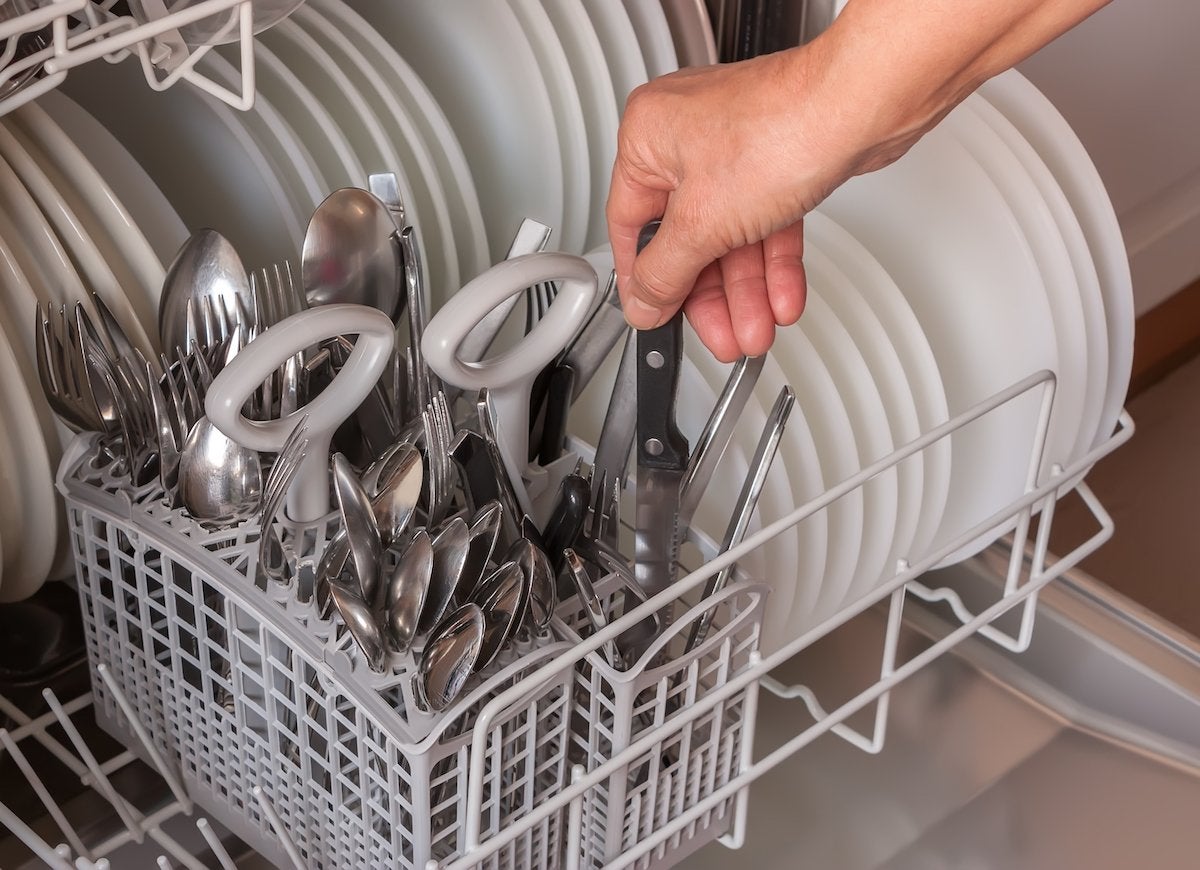
Photo: iStock
When loading the dishwasher, be sure to alternate the orientation of flatware (placing some with handles up and some with handles down) so that forks and spoons don’t nest together. Sharp knives, if you put them in the dishwasher, should always go handles up—for obvious safety reasons.
Clean While You’re Cooking
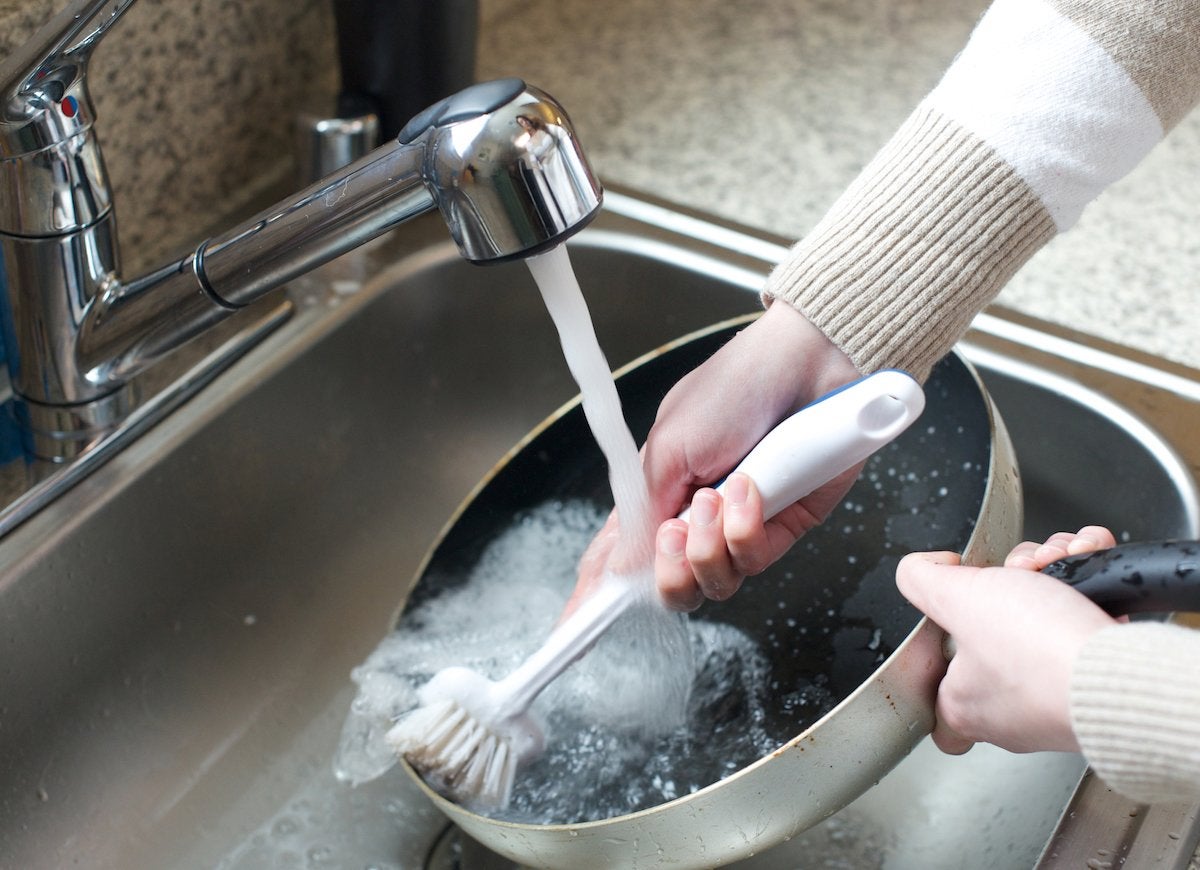
Photo: iStock
Wash your pots and pans as you finish your cooking tasks—it’s what chefs do in professional kitchens! Food residue wipes off much more easily if the cookware is still warm, and you’ll have fewer things to clean after the meal is over.
Use Cold Water for Dairy and Starch
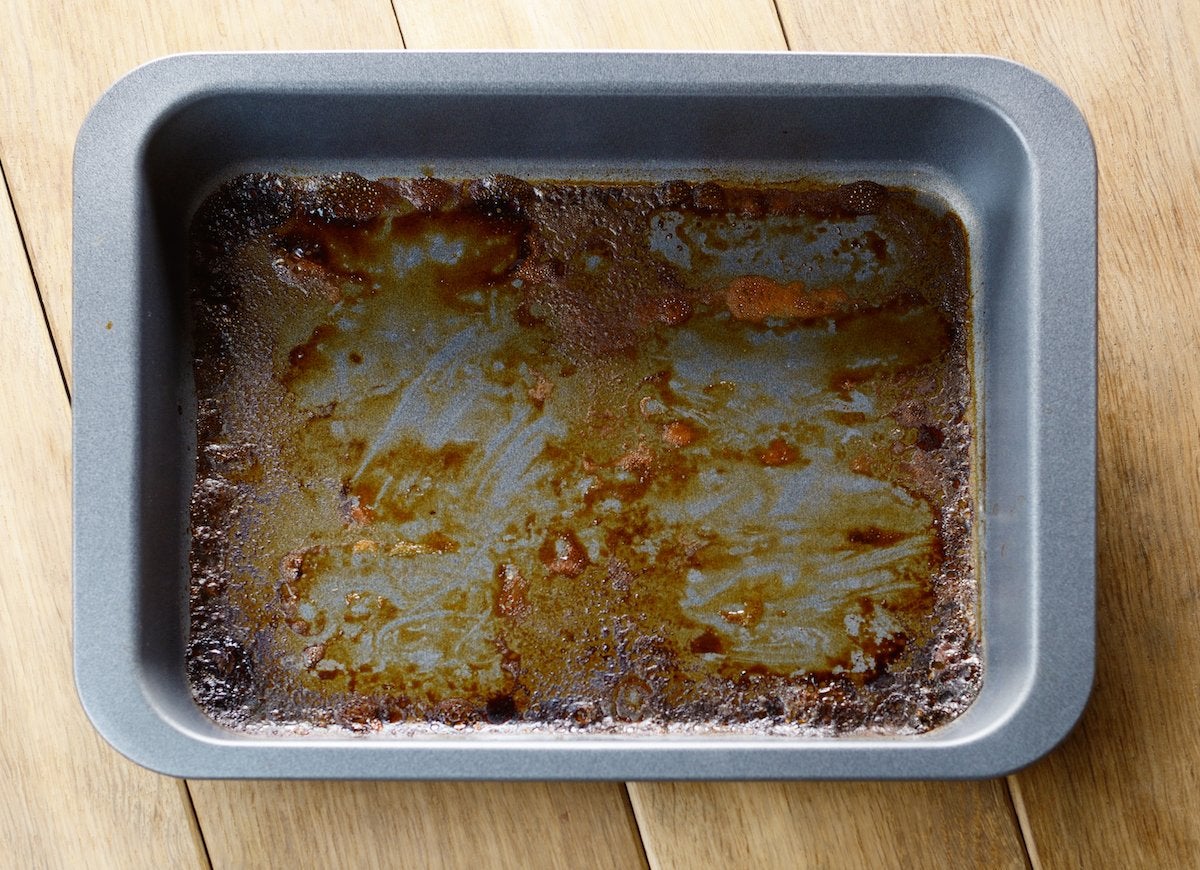
Photo: iStock
It may seem counterintuitive, but using cold water (not hot) to clean cooking messes can make the work go faster. That’s because hot water makes dairy and starch stickier, and harder to wash away.
Lay an Extra Drying Rack
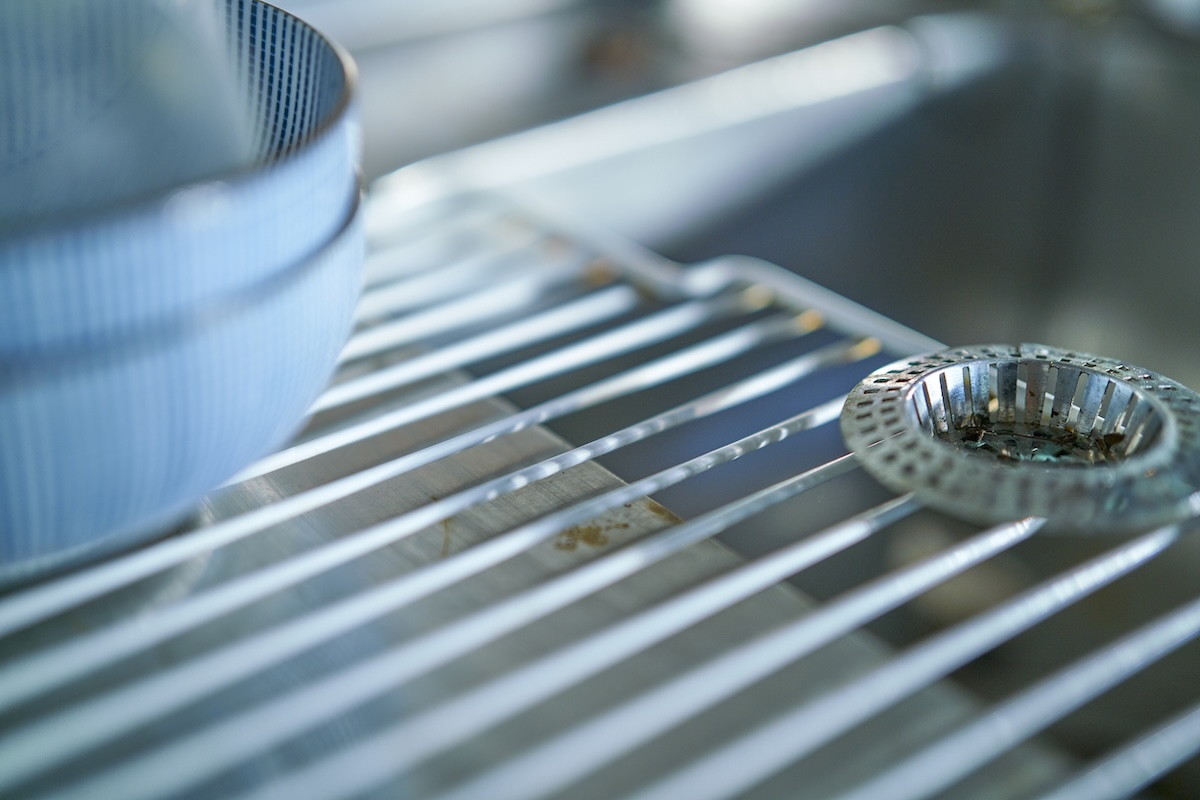
Photo: Tom Ang via Getty Images
Short on counter space but in need of an additional spot to dry your dishes? You can make an extra drying rack by placing a cooling rack on one half of a double sink. Not only will this hack double your dish-drying area, but because the clean dishes will drip right over the drain, your counters will stay dryer.
Don’t Put Off the Washing
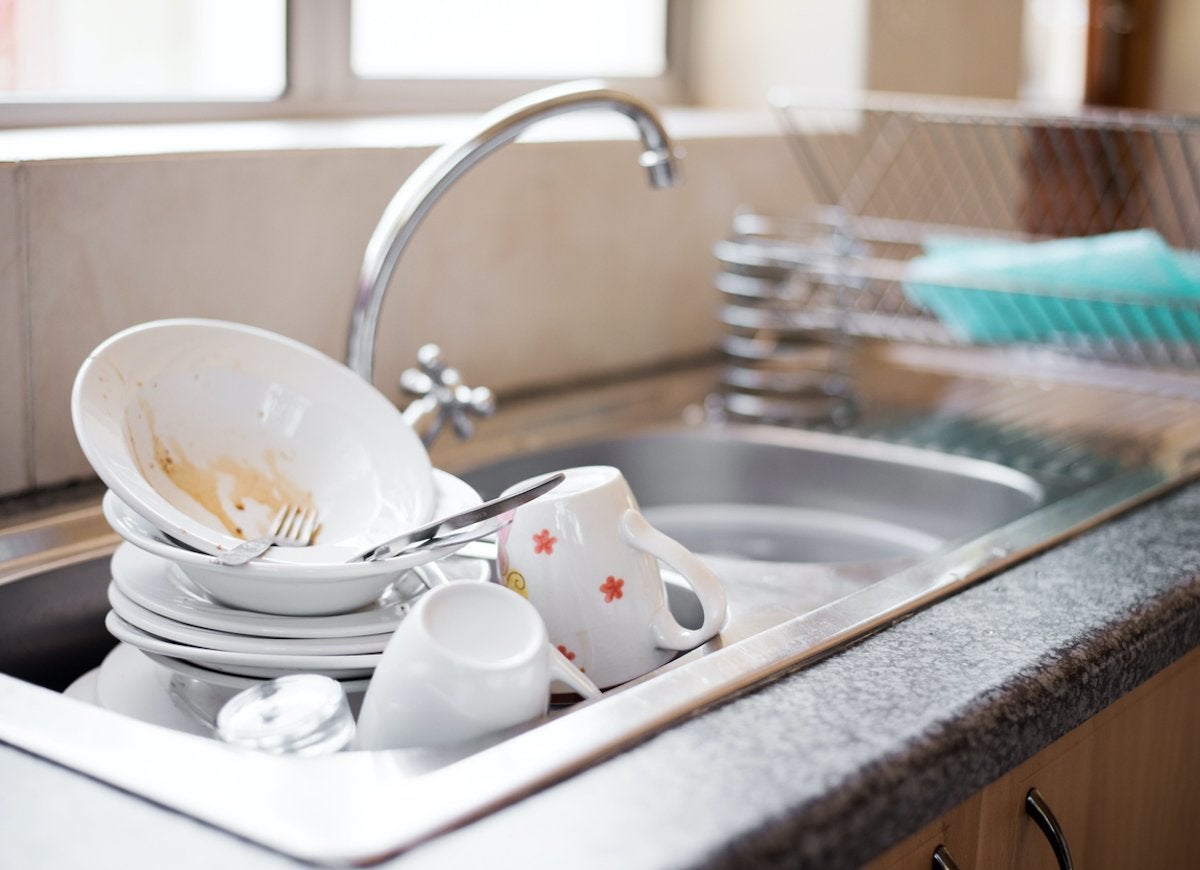
Photo: iStock
Whether you wash them by hand or run them through the dishwasher, deal with the dishes right after the meal is over, so food doesn’t dry out and stick to your pots, pans, plates, and cutlery. A little rinse now will save you from scraping and scrubbing caked-on gunk later.
Wash Them in the Right Order
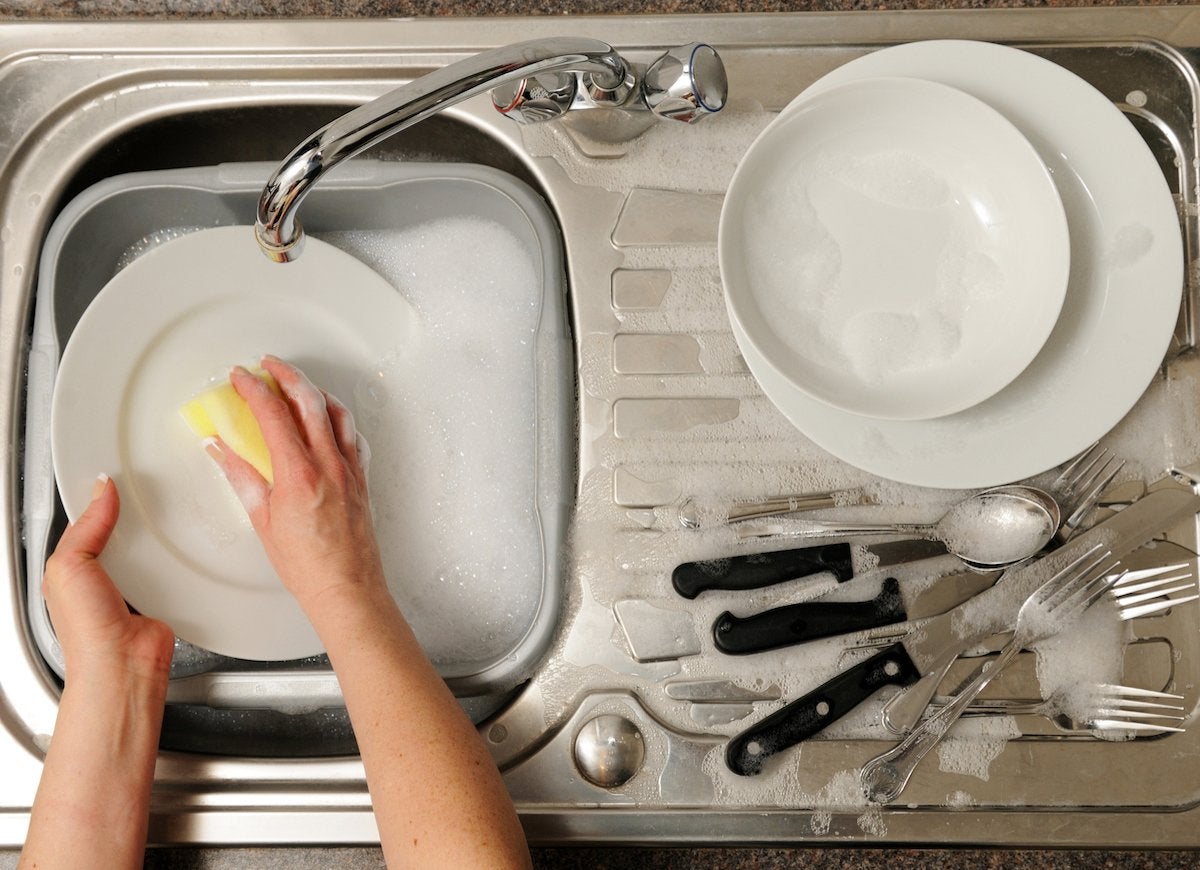
Photo: iStock
Yes, there actually is a right and wrong way to hand-wash dishes. You should go from cleanest to dirtiest. Wash glasses first to ensure that grease doesn’t get transferred onto them. Then wash flatware and plates that have been scraped clean, and last, pots and pans. Do you have a dirty cast iron pan to tackle? Clean it last—after you’ve rinsed the dish soap out of the sink.

This Is the Year for a Kitchen Renovation
Whether you’re selling or staying, everyone can get something out of a kitchen update. Learn why we consider this renovation the Most Valuable Project of 2025 and how to stay on budget.